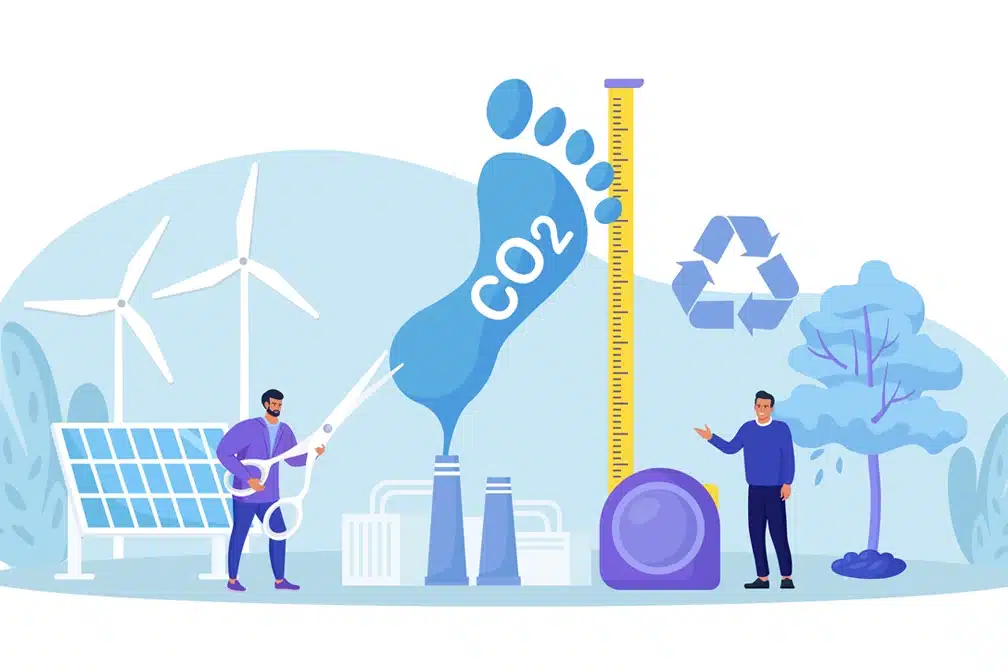Connell High School in Connell, Washington, has formally petitioned the FMCSA to allow students under 18 to obtain commercial learner's permits (CLPs).
Continue Reading
May 19, 2024 6:12 pm

In a recent development on Capitol Hill, Republican members of Congress have taken decisive action to challenge the Federal Highway Administration’s (FHWA) greenhouse gas performance measures. This move, supported by various industries, including trucking, has sparked bipartisan concern regarding the potential implications for transportation stakeholders across the nation.
On February 7th, Senators Shelley Moore Capito of West Virginia and Kevin Cramer of North Dakota introduced a Congressional Review Act resolution aimed at overturning FHWA’s greenhouse gas performance measures. Co-sponsored by the majority of Republican senators and one Democratic co-sponsor, this resolution underscores a shared apprehension about FHWA’s regulatory actions.
FHWA’s greenhouse gas performance measures, detailed in a final rule issued last November, mandate state Departments of Transportation (DOTs) and metropolitan planning organizations to establish declining carbon dioxide targets and report on their progress. While some stakeholders, including environmental groups and state DOTs, have expressed support for these measures, others have raised significant concerns.
Critics argue that FHWA’s implementation of greenhouse gas performance measures exceeds its jurisdiction, particularly in light of Congress’s omission of similar provisions in the Infrastructure Investment and Jobs Act of 2021. Despite this legislative gap, FHWA proceeded with the measures, prompting swift opposition from lawmakers, industry groups, and state attorneys general.
Truck drivers, integral to the functioning of the transportation sector, are closely monitoring these developments. Industry associations such as the American Trucking Associations (ATA) and the Owner-Operator Independent Drivers Association (OOIDA) have voiced concerns about the potential impact of FHWA’s measures on trucking operations.
If implemented, FHWA’s measures could introduce additional regulatory burdens on trucking companies, affecting everything from fuel consumption to route planning. This could ultimately lead to increased costs for truck drivers and disrupt supply chains across various industries, impacting the broader economy.
The coalition of associations opposing FHWA’s measures, including OOIDA, is actively advocating for congressional intervention. By supporting the Congressional Review Act resolution, these groups seek to halt the implementation of FHWA’s greenhouse gas performance measures and advocate for a more balanced approach to environmental regulation within the transportation sector.
Truck drivers are encouraged to stay informed about these developments and engage with industry associations to voice their concerns. Whether through grassroots advocacy or direct engagement with lawmakers, truck drivers have the opportunity to shape the outcome of this legislative debate and ensure that any regulatory measures serve the interests of the entire trucking community.
Amidst regulatory uncertainties, truck drivers are reminded to prioritize safety and efficiency in their daily operations. Adherence to best practices and industry standards remains paramount for ensuring smooth and reliable transportation services, regardless of evolving regulatory landscapes.
As Congress deliberates on the fate of FHWA’s greenhouse gas performance measures, truck drivers play a crucial role in shaping the outcome. By staying engaged, informed, and proactive, truck drivers can contribute to policies that balance environmental stewardship with the economic vitality of the trucking industry. In this dynamic regulatory environment, the voices of truck drivers are essential in advocating for solutions that benefit the entire transportation ecosystem.
Connell High School in Connell, Washington, has formally petitioned the FMCSA to allow students under 18 to obtain commercial learner's permits (CLPs).
Continue ReadingThe U.S. government is increasing scrutiny on Chinese companies that are potentially dodging tariffs by manufacturing Chinese EVs (electric vehicles) in Mexico.
Continue ReadingIn a legal battle that could reshape the trucking industry, 24 Republican states join to bring a lawsuit against the EPA and the state of California.
Continue ReadingThe American Trucking Associations (ATA) has expressed strong opposition to the Department of Justice's proposed rule of marijuana reclassification.
Continue ReadingConnell High School in Connell, Washington, has formally petitioned the FMCSA to allow students under 18 to obtain commercial learner's
Continue ReadingIn an effort to increase efficiency and sustainability in Trucking, Phillips Industries has launched their new, advanced, stick-on solar panels
Continue ReadingThe U.S. government is increasing scrutiny on Chinese companies that are potentially dodging tariffs by manufacturing Chinese EVs (electric vehicles)
Continue ReadingIn a legal battle that could reshape the trucking industry, 24 Republican states join to bring a lawsuit against the
Continue ReadingOOIDA • ATA • DOT • NASTC • WOMEN IN TRUCKING • NPTC • DRIVER RESOURCES • TDN STAFF • ARCHIVES • SITEMAP